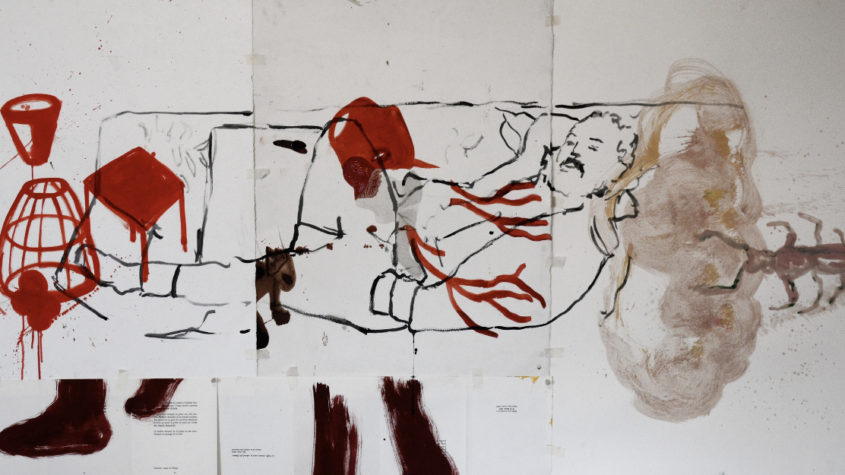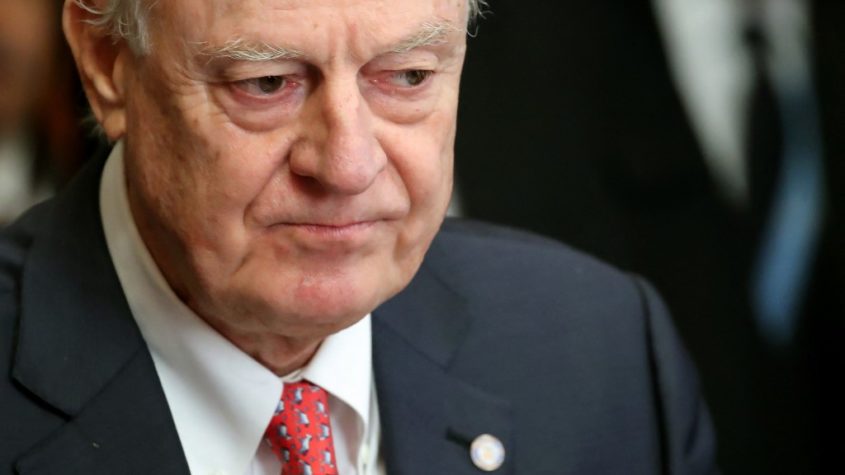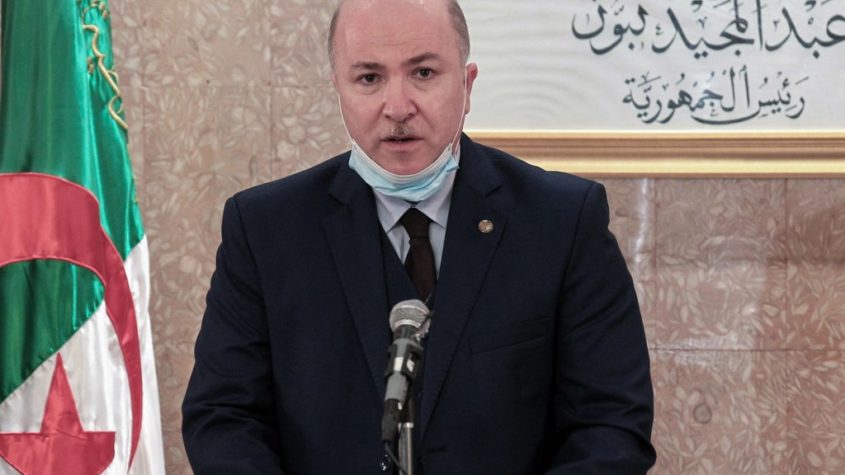Invitations to tender are issued discreetly, sometimes directly to a short list of Moroccan or foreign companies. Launched by wilayas or local development agencies and companies on behalf of the Direction générale de la sûreté nationale (DGSN), city video surveillance projects have abounded in recent months.
Like the world’s metropolises, which have been surfing the “smart city” concept for the past fifteen years, and which are now moving towards the “safe city”, the kingdom’s cities, which are still poorly equipped with cameras, want to get up to speed and make the protection and surveillance of their inhabitants their hobbyhorse.
Casa smart city
Recently, the call for tenders for Casablanca’s surveillance megaproject, launched last February and valued at 720 million dirhams, has been the talk of the town. Some media outlets have been quick to use references to works of fiction to describe the project: “Big Brother”, “Minority Report”… Will the economic capital soon have an eye on every move made by the people of Casablanca?
Officially, the project launched last February by the Société de développement local (SDL) Casa Transports aims to set up a majorvideo protection and intelligent traffic regulation system in the White City. A godsend at a time when Casablanca wants to become a benchmark for “smart cities” on the African continent, and thus attract more foreign investors.
“What Casa Transports wants, through the technical specifications requested by the DGSN, is really a solution that moves towards the smart city, with a strong focus on safety”
“What Casa Transports wants through the technical specifications requested by the DGSN is really a solution that moves towards the smart city, very much focused on security“, stresses a source operating in the security systems sector, who requested anonymity. This view is shared by another operator in the sector, who asserts that “it’sa citizen protection and security project, rather than a surveillance project. In a city like Casablanca, which is moving towards becoming a smart city, it’s essential to have cameras that can, for example, provide images of a car accident or a snatch-and-grab”.

In the list of technical specifications requested by the DGSN for this project, to which TelQuel had access, high-tech surveillance equipment takes the lion’s share: cameras with facial recognition or automatic license plate reading, technological solutions for people detection and traffic management (detection of wrong-way vehicles, traffic jam warning system, real-time vehicle counting on a given axis…).
In all, 577 sites will be equipped with one to four cameras, ranging from multi-sensor cameras to fisheye (360°), thermal or wide-angle cameras. In addition, two drones will be flying over the city’s main thoroughfares.
This vast video surveillance system, linked to a data center, will be able to detect offences such as muggings, failure to obey a red light, wrong-way traffic or drivers crossing a continuous line.
The data will then be sent in real time, via a new fiber-optic network deployed throughout Greater Casablanca, to DGSN officers “for verification and ticketing”, according to the specifications. This will enable police and security services to act more rapidly in the field.
According to our information, the two French infrastructure and security giants, Bouygues and Thales, in association with Moroccan companies, are the only competitors in the running to win this project, which is due to start by the end of the year.

Tourism insurance in Marrakech
Another project, smaller in scale but just as strategic, is the deployment of a video surveillance system in Marrakech. Supported this time by the Al Omrane development company, this 18 million dirham project aims to reinforce security in the old medina of the ochre city with the installation of 223 cameras.
Once again, no expense will be spared in terms of technical resources: intelligent fixed and mobile cameras, cameras with automatic license plate reading and cameras with facial recognition via artificial intelligence will henceforth be part of the urban décor of the old medina. A data center in the heart of Place Jamaâ El Fna will be used to centralize all images captured.
“The installation of additional cameras equipped with new technologies will reassure residents of the old medina, nationals and tourists alike”
“The aim of this project is to enable the securing of more areas in the old medina, mainly its circuits which are touristy for the most part“, a source within Al Omrane confided to us last April, when the project was announced. “The installation of additional cameras equipped with new technologies will reassure residents of the old medina, nationals and touristsalike.It’s a good thing for the recovery of tourism. It’s an argument for selling Marrakech internationally as a safer destination“, boasted Abdellatif Abouricha, Communications Director of the Marrakech Regional Tourist Board (CRT).
An eye on Al Hoceïma
A detour to the north, this time to Al Hoceïma, where a similar project has just been launched by the Agence de promotion et de développement du nord (APDN), as part of the Manarat Al Moutawassit program. Launched in 2015, this program for the province’s economic and social development has received new impetus since 2016 following the events of the Rif Hirak that shook the region.
According to our Desk colleagues, a budget of nearly 7.9 million dirhams has thus been released for this video surveillance project, which will cover several perimeters of the city and include, here too, cameras with facial or plate recognition, which will be able to “store metadata on people and vehicles”. “The visualization, processing and storage of images will be handled by management platforms to be installed within the control center”, it is specified in a document detailing the project’s outlines.

Huawei sets up shop in Dakhla
Much further south, new surveillance technologies are making their way into Dakhla, a city that has become a hotspot for foreign diplomatic representations, and the focus of attention for foreign investors.
At the end of May, a meeting between the wilaya and representatives of the Chinese giant Huawei in Morocco laid the foundations “for future cooperation in the deployment of new technological solutions for the digital transformation of the city of Dakhla“, the wilaya announced with great fanfare in a press release. Among the objectives announced were “the launch of Dakhla Smart City, the equipping of the new port with technological solutions and the deployment of intelligent video-protection systems to reinforce the city’s security“, it read.
“While Huawei sells video surveillance products, it has no access to what end customers do with them and is not involved in their installation”
A cooperation project about which little information is filtering. Contacted by TelQuel, Huawei Technologies Maroc is refusing to comment for the time being. However, “although Huawei sells video surveillance products, it has no access to what end customers do with them, and is not involved in their installation”, says an authorized source within the group.
Criticized in recent years for the vagueness surrounding data collection by its surveillance systems, the Chinese behemoth, which is very active on the African continent, doesn’t always get good press. “Huawei does not represent China; it’s a brand, not a state”, our source defends.
Rabat, Fez, Tangier… in the firing line
To a lesser extent, other cities in the kingdom have begun to equip themselves with surveillance cameras in recent years. This is the case in Rabat, Fès and Tangiers, where video surveillance systems controlled by the DGSN have been installed in several districts.
Recently, a call for tenders was issued for the installation of surveillance systems in Rabat’s Green Belt, notably to prevent and combat forest fires. According to our information, the Rabat Région Aménagement company has another surveillance project for the capital in the pipeline, with an estimated budget of several tens of millions of dirhams, but it has yet to see the light of day.
In Fez, in 2018, the Moroccan company Sphinx Electric took on the task of equipping the main arteries and part of the old town with around a hundred cameras controlled by teams from the DGSN control room at the police headquarters, for a budget of 10 million dirhams, according to our information. An extension is planned.
The same modus operandi applies in Tangier, where 200 cameras have been deployed in recent years, a contract won by Cires Technologies. These projects are set to intensify in the future, as the market for surveillance cameras has boomed in recent years.





Vous devez être enregistré pour commenter. Si vous avez un compte, identifiez-vous
Si vous n'avez pas de compte, cliquez ici pour le créer